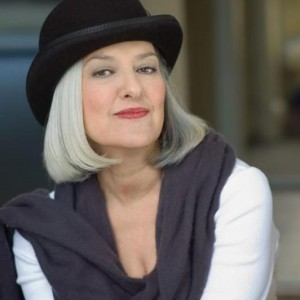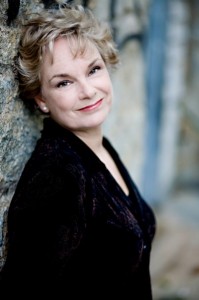
“Whistling Psyche” runs Feb. 13-23 at the third-floor, black-box space at the Alliance Theatre, Woodruff Arts Center. Showtimes: 8 p.m. Thursday-Saturday; 2 p.m. Sunday. PWYC industry night at 8 p.m. Feb. 19. $15-$25. 404.692.0053. Details: www.facebook.com/WhistlingPsyche. Discount tickets and parking PoshDealz.com.
::
ACTORS KATHLEEN McMANUS AND JOANNA DANIEL have been reliable faces on Atlanta’s theater scene for so many years it’s almost shocking to learn that they never worked onstage together before Theater Emory’s Persuasion in 2011.
It doesn’t surprise McManus, though. “Atlanta has such a dense population of kick-ass actresses of a certain age, and we’re typically in competition for the same roles. It’s like a duck-shooting gallery. You can take your pick.”
McManus and Daniel fly in the face of such odds to produce themselves in Whistling Psyche. Their roles as Victorian-era luminaries would be fascinating enough, but Whistling Psyche is also a kind of dry run for a new theater company they’re helping found.

The production coincides with the launch of Arís Theatre (Arís means “encore” in Gaelic), a Celtic-Irish-Scottish theater company that hopes to pick up where the one-time Atlanta company Theatre Gael left off.
“We hope that this show will be a sort of steppingstone to the inaugural Arís season, starting in June with Enda Walsh’s New Electric Ballroom, which Kathleen is directing and I am co-producing,” Daniel says.
McManus’ interest in Whistling Psyche goes back three years, when she learned about Irish playwright Sebastian Barry’s script while doing research for an audition. Whistling Psyche envisions a meeting between Florence Nightingale, the founder of modern nursing, and pioneering surgeon James Barry, who lived his life as a man but, upon his death, was discovered to have been a woman.
“I got it in the mail, read it and fell in love with it,” McManus recalls. “And I already knew a British actress to play Florence Nightingale, so I didn’t have to look any farther than Joanna. We were already working in a play reading group called the Wise Crones.”

Daniel, an Army brat who retains an accent from her formative years in Surrey, England, has been eagerly researching the life of Nightingale. “There is so much to learn,” she says. “I have read three biographies, two of which Barry used as references for this play, and there is a huge amount of material available on the Internet as well. Her intelligence and wit are most evident in Barry’s portrait of her in this play.”
McManus says that recent trips to Edinburgh and London, as well as reading up on the history of surgery, will help her get into character as Barry. But she adds, “When you do a play that’s a two-hander, you have a ton of text to get in your head. The research is a luxury.”
She seems undaunted by the gender-related challenges of playing Barry. “I’m sort of physically right for it. He’s described as short with an angular face, and I think I’m someone with a masculine energy. It just comes naturally to me.”
The restricting costuming helps put her in Barry’s frame of mind, too. “His voice was not masculine, but there’s something about spending your life in masculine attire,” McManus says. “That age more than any before or since defined gender roles with clothes. The age of the fops was over. In the Victorian age, you were either male or female.”
Although Barry and Nightingale are believed to have met only once, playwright Sebastian Barry (no relation to the surgeon) depicts an imaginary encounter between them. “The central thesis is that Barry is stuck in limbo because of his hatred of Florence Nightingale,” McManus says. “She was celebrated for things that he was not, and she accomplished what she did as a woman, without having to live as a man.”
About the future, Arís’ founders say they’re passionate about following in Theatre Gael footsteps. “We’re all alums,” McManus says, “and we want to fill a vacuum left behind when [artistic director] John Stephens stopped producing. There’s something truly special about these plays. They’re some of the best in the English language, by some of the best storytellers in the world. But since Theatre Gael stopped producing, it feels like they’re not being looked at by other artistic directors, who have other missions. We want to bring that voice to the table once again.”
And if Celtic theater in Atlanta were a medical patient, who better to begin its resuscitation than Florence Nightingale and Dr. Barry?



